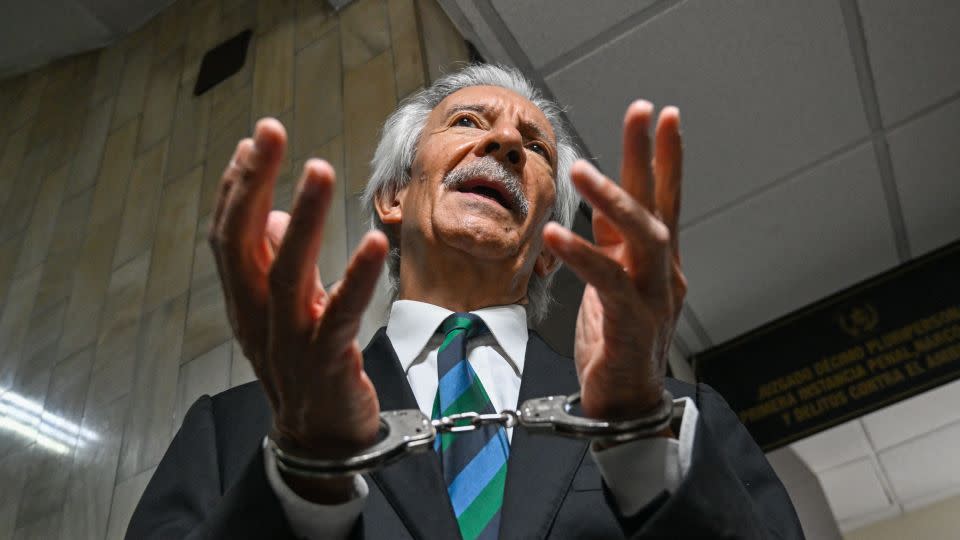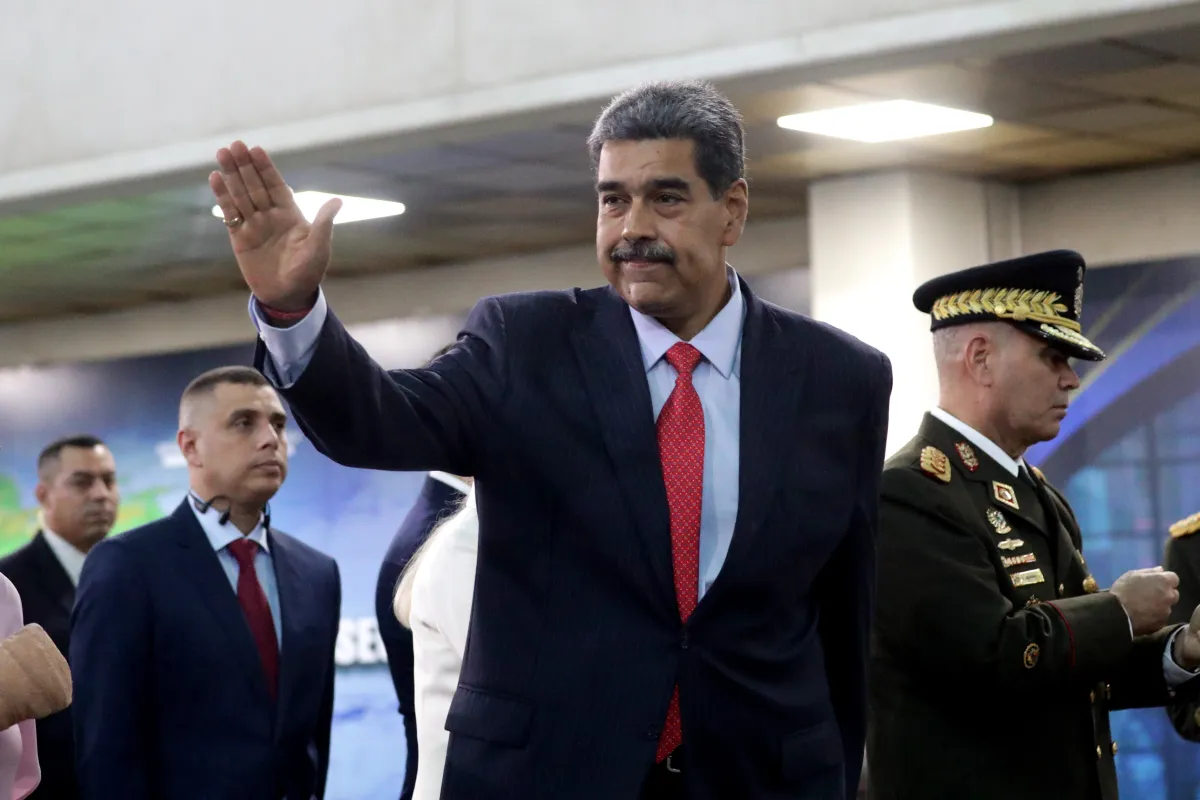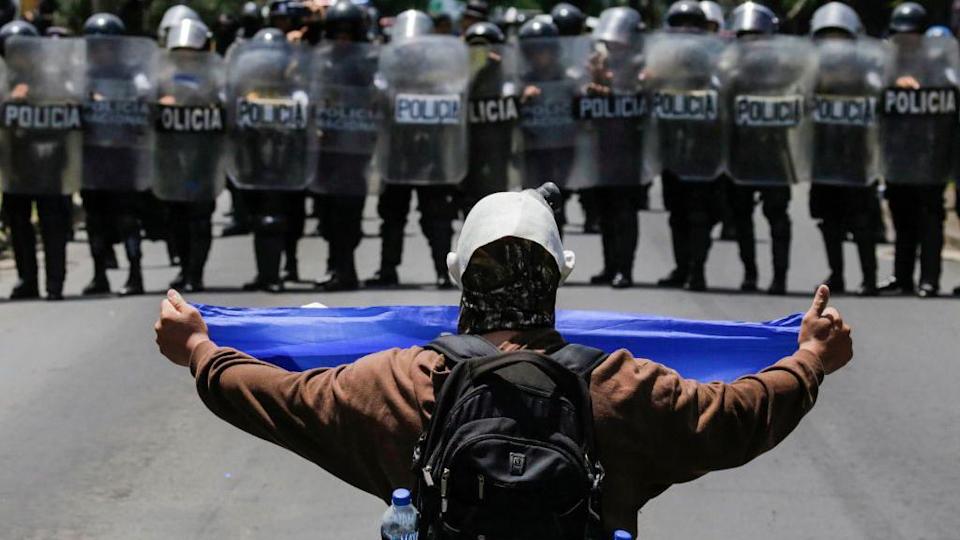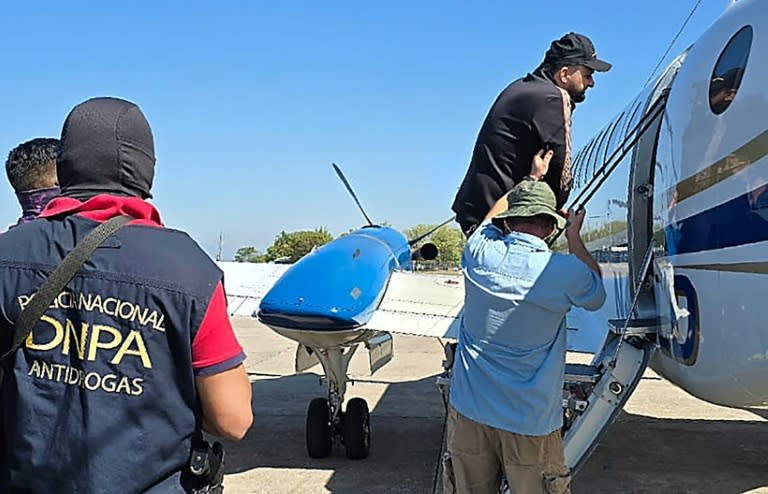Centroamérica
Guatemalan journalist José Rubén Zamora returns to prison after court revokes release

Businessman and journalist José Rubén Zamora was sent back to prison on Monday after the Second Multipersonal Criminal Court complied with an order from the Third Court of Appeals, which suspended his conditional release. The ruling followed a motion filed by the Public Ministry, arguing that Zamora posed a flight risk.
“I must comply with and enforce the order,” Judge Erick García stated during the hearing that revoked Zamora’s substitute measures, which had been in place since October last year.
Following the court’s decision, the founder of El Periódico was transferred back to prison, where he had already been incarcerated from July 2022 to October 2024.
Zamora’s defense team unsuccessfully requested the suspension of the hearing, citing two pending appeals aimed at overturning the Court of Appeals’ decision.
Centroamérica
White House rejects Maduro letter to Trump as full of lies

White House spokesperson Karoline Leavitt confirmed Monday that U.S. President Donald Trump received a letter from Venezuelan President Nicolás Maduro, whom she described as “illegitimate.” In the letter, Maduro expressed his willingness to engage in dialogue, but Leavitt warned that the document “contains many lies.”
“We have seen this letter. Frankly, I think Maduro repeated many lies in it, and the Administration’s stance on Venezuela has not changed,” Leavitt said during a press conference at the White House.
The spokesperson emphasized that Washington considers the Chavista regime illegitimate and underscored that “President Trump has clearly demonstrated his willingness to use all necessary means to stop the lethal drug trafficking from the Venezuelan regime to the United States.”
Meanwhile, Venezuelan Executive Vice President Delcy Rodríguez confirmed on Sunday that Maduro sent the letter to Trump and published it on Telegram.
Dated September 6, the letter expresses Maduro’s willingness to negotiate with U.S. special envoy Richard Grenell and denies any links to drug trafficking. “In recent weeks, absolutely false accusations have emerged about connections with mafias and drug trafficking gangs by the legitimate high authorities of Venezuela,” the letter reads.
Central America
UN experts label Nicaragua’s repression as crimes against humanity

These are just some of the violations of human integrity that the United Nations’ Group of Experts on Human Rights in Nicaragua considers crimes against humanity.
The expert team determined in its latest report, presented on April 3, that the “State is persecuting its own people” with repressive actions that, under international law, would fall into the category of crimes against humanity.
“This report is a wake-up call for the international community about the situation in Nicaragua and its duty to protect its population,” Jan-Michael Simon, a lawyer and president of the group, told BBC Mundo.
The document identifies 54 individuals, including ministers, members of the security forces, and civil society actors, as responsible for the “systematic and widespread repression” carried out by the regime of Daniel Ortega and Rosario Murillo.
Although this is not the first time the technical team created in 2022 has denounced the events that began with the 2018 protests in Nicaragua, the report now names the alleged perpetrators, whose guilt will have to be determined by international justice bodies such as the International Court of Justice in The Hague.
As a result of the report, the “co-presidents” Daniel Ortega and Rosario Murillo decided to withdraw their country from the United Nations Human Rights Council.
“Nicaragua conveys its sovereign and irrevocable decision to withdraw from the Human Rights Council and from all activities related to this council and all its satellite mechanisms,” Murillo announced.
Centroamérica
Honduras extradites José Sosa to U.S. on cocaine trafficking charges

Honduras handed over an alleged drug trafficker to the United States on Tuesday under a bilateral extradition treaty that remains in effect after a diplomatic rift between leftist President Xiomara Castro and Washington was resolved, the Honduran Police reported.
José Sosa, a 48-year-old Honduran national, was transferred from the Támara National Penitentiary in the capital to Palmerola Airport, located about 50 km north of Tegucigalpa, according to an official statement.
“He was handed over to U.S. authorities under strict security measures,” the statement added.
The police explained that the suspected drug trafficker was wanted by a federal court in Florida on cocaine trafficking charges. His extradition was approved on April 30, 2020, but he had to serve a sentence in Honduras for illegal possession of firearms before being transferred to the U.S., the report said.
-

 Central America5 days ago
Central America5 days agoGuatemala Police Arrest Prison Guard Caught in the Act of Extortion
-

 Central America5 days ago
Central America5 days agoHonduras swears in conservative president Asfura after disputed election
-

 Central America5 days ago
Central America5 days agoBukele leads public trust rankings as UCA survey highlights gains in security
-

 International4 days ago
International4 days agoFootball Fan Killed in Clashes After Colombian League Match
-

 Central America4 days ago
Central America4 days agoGuatemala President Says Starlink Terminal Found Inside Prison
-

 International5 days ago
International5 days agoDoomsday clock moves to 85 seconds before midnight amid rising global risks
-

 International5 days ago
International5 days agoWinter Storm Fern Leaves 30 Dead and Over One Million Without Power Across the U.S.
-

 International5 days ago
International5 days agoSpain approves plan to regularize up to 500,000 migrants in Historic Shift
-

 International3 days ago
International3 days agoU.S. Senate Rejects Budget, Bringing Government Closer to Shutdown Amid DHS Dispute
-

 Sin categoría5 days ago
Sin categoría5 days agoEight Killed in Series of Armed Attacks in Ecuador’s Manabí Province
-

 International4 days ago
International4 days agoMissing Spanish Sailor Rescued After 11 Days Adrift in Mediterranean
-

 International4 days ago
International4 days agoRubio Says U.S. Could Participate in Follow-Up Russia-Ukraine Talks
-

 Sin categoría5 days ago
Sin categoría5 days agoEl Salvador Launches Fourth Year of Ocean Mission to Protect Marine Ecosystems
-

 Central America2 days ago
Central America2 days agoPanama Supreme Court Strikes Down Panama Ports Concession as Unconstitutional
-

 International3 days ago
International3 days agoStorm Kristin Kills Five in Portugal, Leaves Nearly 500,000 Without Power
-

 Central America2 days ago
Central America2 days agoU.S. and Guatemala Sign Trade Deal Granting Zero Tariffs to Most Exports
-

 International3 days ago
International3 days agoTrump Says Putin Agreed to One-Week Halt in Attacks on Ukraine Amid Extreme Cold
-

 International3 days ago
International3 days agoMan Arrested After Vehicle Crashes Into Jewish Institution in Brooklyn


























